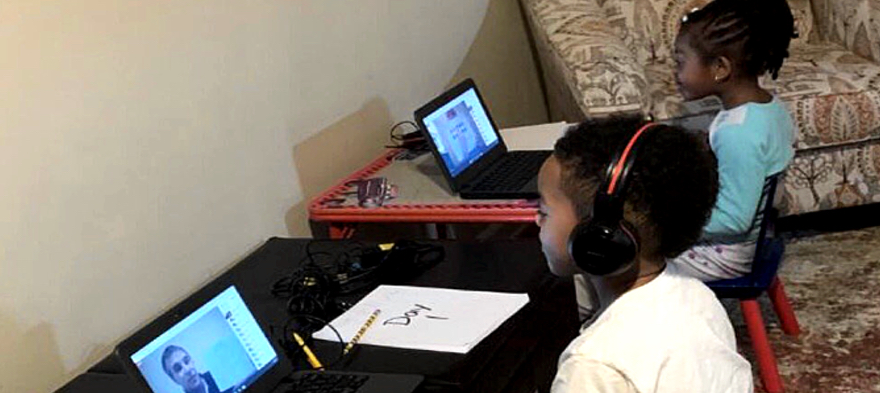
“Simple, Equitable, Joyful, and Accessible:” Best Remote Instruction Practices From NJ Charter School Leaders
May 27, 2020
Newark’s Universal Enrollment Plan Put Parents In the Driver’s Seat But The Superintendent Just Bumped Them to the Back of the Bus
June 1, 2020NJ Education Committee Chairs Ruiz and Lampitt Say State DOE Needs to Step it Up Now
Wednesday I wrote about the webinar “Learning from NJ’s Public Charter Schools during COVID-19” but I left out the opening discussion with Senator Teresa Ruiz and Assemblywoman Pamela Lampitt, Chairs of the Senate and Assembly Education Committees, who both provided thoughtful comments about New Jersey’s educational crisis. First let’s focus on Ruiz’s concerns about the role of the NJ Department of Education. After moderator Harry Lee, head of the NJ Public Charter School Association, asked them, “what have you been hearing about the greatest barrier to distance learning,” Senator Ruiz replied:
We don’t ever want to dictate to districts, but the New Jersey Department of Education must have one uniform approach: To see what we’ve done and what has not been done. We need [from the DOE] uniform benchmarks so we know these expected things are happening. There are no easy answers and these are not easy times. Yet this is what we require. You can go above and beyond but a bottom-line benchmark must be established by the DOE.
But wait — this is New Jersey, whose anthem is local control. Individual districts have the authority to figure these things out themselves, right?
If that’s your view, you must be fans of the Trump Administration’s hands-off approach to COVID-19 testing and contact tracing. The federal government is the “supplier of last resort” and states are on their own.
How’s that working out?
We’re over 100,000 deaths in the U.S. with no end in sight: Not enough tests, not enough contact tracing, not enough PPE. Without those basic supplies, deaths will keep rising. According to the Atlantic, which is coordinating data from the the COVID Tracking Project,
To an almost astonishing degree, the U.S. has no national plan for achieving this goal. There is no effort at the federal level that has mustered anything like the funding, coordination, or real resources that experts across the political spectrum say is needed to safely reopen the country.
Caitlin Rivers, a senior scholar at the Johns Hopkins Center for Health Security, said “the U.S. needs a federal team relentlessly focused on assessing and expanding its ability to test for the coronavirus.”
Just like New Jersey needs a DOE team relentlessly focused on frequently assessing individual districts’ remote instruction plans, providing oversight and aid, and issuing what Ruiz calls “bottom-line benchmarks” so that districts like Trenton, Newark, and Paterson remain on course. (Because they’re not, at least in part because the DOE recently dismantled the Office of Educational Technology. Click here for the backstory.)
This DOE has not provided “bottom-line benchmarks.”
Instead this DOE announces on its homepage,
The Department recognizes that ‘schooling’ cannot continue as usual and that schools and educators will be addressing the diverse needs of their students in different ways. We hope that this information will help our students continue to receive the same high-quality education that has made New Jersey number one in the nation.
In a moment of serendipity, Ruiz continued,
We say we [our state education system] is the number one in the country. I laugh about this all the time, and I will until that’s actually true for all our districts….That is not the honest truth for all my families. Until that is true for every student in New Jersey there is still a lot of work to be done. Our achievement gap is stagnant and growing.
Refreshing to hear such honesty from a legislator.
Ruiz and Lampitt expressed their admiration for teachers — “the only workplace where you can’t take a 10-minute break,” said Ruiz; “I commend wholeheartedly the teachers,” said Lampitt —and both noted that, in addition to lack of DOE leadership, a huge barrier was the lack of internet access for low-income students. (Last stat I heard was that between 90K and 100K students still lack internet.) Ruiz: “It is just so frustrating to me that we are 8 weeks in and we still have families that are not digitally connected…everything is crushed.” Lampitt: “It’s all technology. We weren’t prepared.”
They also agreed that there are opportunities within the crisis, what Ruiz called “an extraordinary opportunity to recreate our K-16 school system.”
“Zip codes,” she said, “restrict students from realizing their potential…We know this system doesn’t work for everyone” and now everyone is talking about it. She divided the challenges into three buckets: Immediacy (providing necessities for remote instruction like internet and food), Strategic Planning for Learning Loss (providing remediation during the summer and fall), and How To Use the Pandemic to Make Changes (for example, changing the calendar to reflect student learning needs). She also argued for the continuation of blended learning, which offers benefits to some students: “Nothing can ever replace my daughter being in her classroom. How wonderful would it be when that happens that we still have our students with chromebooks and connection to the internet?”
Lampitt noted that “great things can be done” when the head of the Senate and Assembly Education Committees “are on the same page.” She expressed concerns about “appropriate allocations of any money through the CARES Act,” unlike Hurricane Sandy, when it wasn’t. There are some young people, she said, “who learn better through visual interaction” (like computers) and education should be delivered in a diverse way. Her primary concern is “what will happen in September. We don’t have the procedures in place to provide safe care. We need practical procedures…to ensure safety. Children will have to get tested.”
Lampitt also noted that, for parents with children with disabilities, “school can be a respite” and we “have to address their ongoing needs in this environment.” Also, “children learn from other children” and school closures have interrupted that particular form of learning. “They want to emulate someone else and that’s been taken away from them.”
Ruiz (who was hopping between Zoom calls) added at the end, “everything [Assemblywoman Lampitt] has shared, it’s just compounded. Counselors are telling me terrible stories of loss. For kids who have lost someone, how do they continue to learn?”





1 Comment
It’s troubling that Senator Ruiz who became a NJ state senator in a controversial way is in such an important position on the education committee. Several people from her first campaign were prosecuted for election fraud and one was convicted.